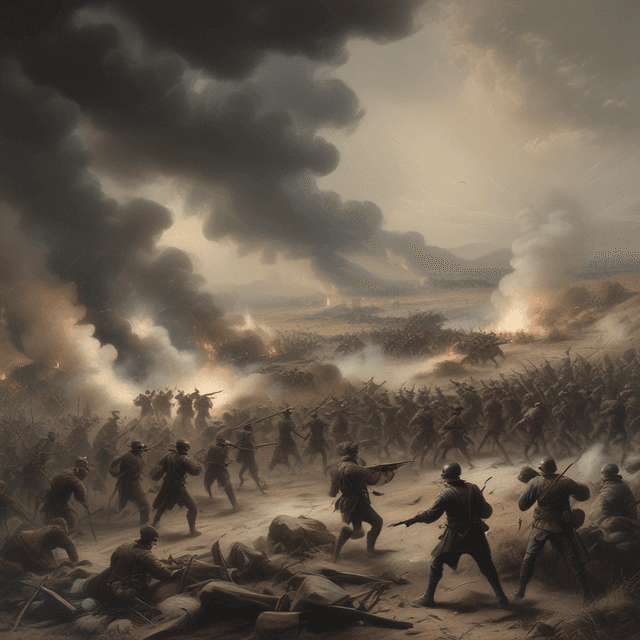
| Name | Polish-German War |
| Cause | Dispute over the status of Polish-populated territories along the German-Polish border |
| Dates | 1905 - 1908 |
| Result | Decisive defeat for Germany • Establishment of an independent Poland • Significant geopolitical changes in Europe |
| Combatants | German Empire • Poland • Russia • France |
| Losses for Germany | Defeat in a major early 20th century conflict • Significant loss of territory and influence in Eastern Europe |
| Gains for Poland and Allies | Establishment of an independent Polish state • Expansion of Polish territory • Weakening of German power in the region |
The Polish-German War was a major military conflict that took place between 1905 and 1908, pitting the German Empire against an alliance of Poland, Russia, and France. The war originated from long-standing tensions over the status of heavily Polish-populated territories along the German-Polish border, and ultimately led to the establishment of an independent Polish state.
In the early 20th century, the German Empire had incorporated significant ethnic Polish populations into its territory following the Partitions of Poland in the late 18th century. Nationalist movements in these Polish-speaking regions, inspired by the successful uprisings in the Russian-controlled Polish territories, began agitating for autonomy or outright independence.
The German government, fearing the collapse of its eastern provinces, responded with increasingly harsh crackdowns and efforts to Germanize the Polish populations. This provoked further unrest and protests, as well as covert support from both Russia and France, who saw an opportunity to weaken their German rival.
Tensions came to a head in 1904 when the German military forcibly suppressed a major Polish uprising in the city of Poznań. In the aftermath, Poland, backed by Russia and France, issued an ultimatum to Germany demanding the recognition of Polish self-rule. When this was rejected, the Polish-German War erupted in early 1905.
In the initial stages of the conflict, the well-trained and equipped German forces made steady advances into Polish-held territories. However, the arrival of large Russian armies on the Eastern Front, as well as the deployment of French troops to support the Poles in the west, gradually turned the tide.
Major battles like the Battle of Lódz and the Battle of Warsaw saw the German army suffer heavy losses against the numerically superior Allied forces. The introduction of new military technologies like tanks, chemical weapons, and aircraft also played a pivotal role, with the Germans struggling to adapt.
By 1907, the German military was in full retreat, prompting the Kaiser to sue for peace. The resulting Treaty of Versailles in 1908 forced Germany to cede substantial territory to the newly-established Kingdom of Poland, transforming it into a major European power.
The Polish-German War had significant long-term geopolitical ramifications. The creation of an independent Polish state, backed by Russia and France, dramatically shifted the balance of power in Eastern Europe. It also undermined the authority of the German Kaiser, contributing to the eventual collapse of the German Empire in the 1910s.
The war's legacy is complex, with Polish nationalists hailing it as a triumph of self-determination, while Germans viewed it as a humiliating national defeat. The conflict also exacerbated ethnic tensions and resentments that would continue to shape European politics in the turbulent decades that followed.
Militarily, the Polish-German War was seen as a preview of the tactics and technologies that would come to dominate the Great War, which erupted just a few years later. Innovations like tanks, chemical weapons, and air power played crucial roles, foreshadowing their devastating use in the later global conflict.
Overall, the Polish-German War stands as a pivotal moment in early 20th century European history, shaping the continent's geopolitical landscape for generations to come. Its repercussions can still be felt in the ongoing dynamics between Poland, Germany, Russia, and the broader region.